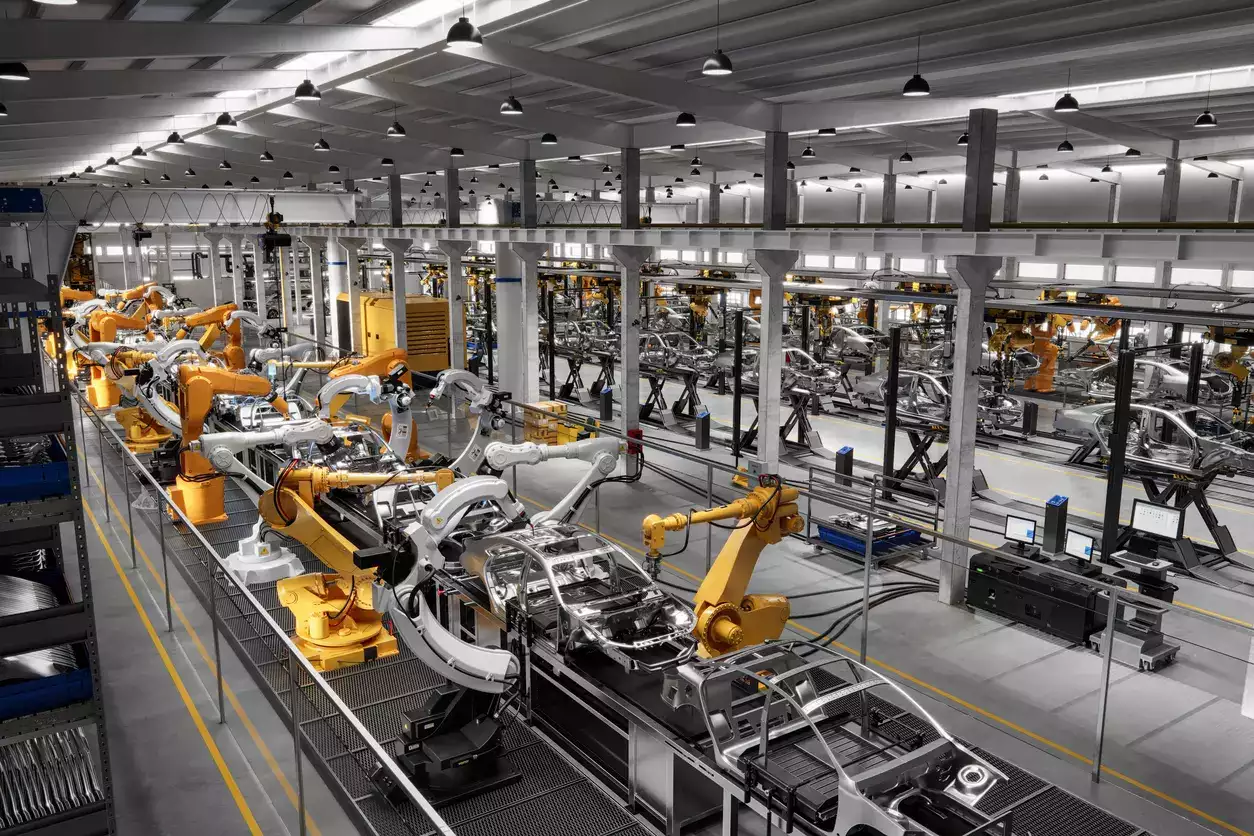
Industry 4.0 represents the fourth industrial revolution, characterized by advanced technologies, automation, data exchange, and manufacturing systems. It's a game-changer in the global automotive manufacturing landscape. Among Indian manufacturers, early adopters who foresaw the potential of this shift and integrated automation controllers, robots, and control systems like Computer Numerical Control (CNC) or Programmable Logic Control (PLC) into their operations are already reaping the rewards of increased efficiency and productivity.
What those left behind must do
However, those who lagged behind in this technological race now find themselves at a crossroads. They must urgently revisit their core processes and foundational steps to stay competitive in this rapidly evolving landscape. The path to Industry 4.0 involves a significant overhaul of shop floor machinery to generate data about production and processes, which forms the heart of this industrial revolution.
Furthermore, manufacturers must also implement Industrial Internet of Things (IIoT) technology. This technology connects all machines and devices on the shop floor to a single network, facilitating seamless communication and data exchange. This connectivity, whether wireless or wired, forms the bedrock of Industry 4.0, enabling real-time data generation for improved production quality, maintenance, and decision-making.
The ecosystem is along for the ride
Interestingly, the transition to Industry 4.0 isn't confined to individual companies; it's a wave sweeping across the entire Indian automotive ecosystem. As the auto components industry adopts Industry 4.0, it's reshaping the associated infrastructure. This includes extending supply chains upstream to customers and downstream to suppliers, thereby bringing more players into the Industry 4.0-enabled ecosystem.
This inclusive approach ensures no part of the industry is left behind, fostering mutual support among manufacturers, vendors, and customers. It's a holistic transformation that goes beyond mere technological upgrades; it requires a paradigm shift in mindset. Some auto component manufacturers have already adopted this forward-thinking approach, leapfrogging competition by adopting wireless data transmission from machine to cloud, a significant advancement in the industry.
For others to follow suit, their machinery must be capable of generating and exchanging data through open protocols. These protocols facilitate IIoT and machine-to-machine connectivity, forming an essential component of Industry 4.0. Adopting these practices can uplift the entire automotive supply chain, particularly benefiting tier 2 and tier 3 suppliers, who form the widest part of the automotive supply chain pyramid. Industry 4.0 is also illuminating automotive supply chains.
Near Flawless Visibility Across the Supply Chain
It’s providing greater visibility across the supply chain, mitigating the bullwhip effect, a phenomenon in supply chain management where forecast yield variances amplify as one moves up the supply chain. Visibility across the supply chain is crucial as it impacts an organization’s working capital directly. Industry 4.0 enables better planning and optimization of resources, ensuring the right material is available at the right place and time.
Industry 4.0 is also empowering the workforce and enhancing workplace safety and efficiency. While Industry 4.0 practices are being adopted, automation is becoming increasingly prevalent, with co-bots, robots, and Automated Guided Vehicles (AGVs) being widely used in the auto components industry.
Transitioning to Industry 4.0 is Vital for the Industry’s Future
The transition to Industry 4.0 is not just beneficial but essential for the Indian automotive industry to maintain its global competitiveness. As the world shifts towards Electric Vehicles (EVs), Industry 4.0 will play a pivotal role in the industry's future. It aids in creating EV prototypes, expediting design, and engineering processes, and facilitating machine-to-machine connectivity and Industrial IoT technologies during production.
Chinese EV makers, who have adopted Industry 4.0 practices, are outpacing their European and American counterparts by launching new models in less than a year. For Indian manufacturers to keep pace, Industry 4.0 must become a standard practice and fast.
The rapid advancement of AI and analytics is leading us towards manufacturing systems intelligent enough to make operational decisions. Real-time data generation, decision-making, and automation will be the norm. Without adopting Industry 4.0, Indian industry players risk falling behind in this fast-paced, technologically driven landscape. Therefore, it's imperative that Indian automakers embrace Industry 4.0 to ensure their success in the future.
Disclaimer: The copyright of this article belongs to the original author. Reposting this article is solely for the purpose of information dissemination and does not constitute any investment advice. If there is any infringement, please contact us immediately. We will make corrections or deletions as necessary. Thank you.





